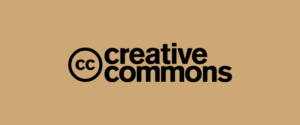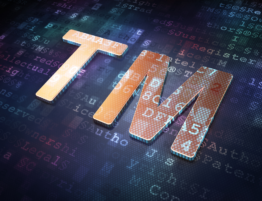
When posting on social media, it is important to understand copyright law and how to protect your business to avoid potential litigation.
Creative Commons & Fair Use
Social media has dominated the way businesses communicate with their clients and leads. Companies are taking the initiative to track trends, news, and buzz to create engaging posts for their followers.
One issue that we have seen with the wave of social media is an infringement on copyrights. Often, individuals are unaware of the consequences they can face when using copyrighted material to sell a product or service.
The first step in avoiding copyright litigation is understanding the difference between fair use and infringement.
Fair use is a defence against infringement; it is the copying of copyrighted material done for a limited and “transformative” purpose, such as to comment upon, criticize, or parody a copyrighted work. Such uses can be done without permission from the copyright owner and are not considered to be an infringement.
In some circumstances, students and teachers can use video or sound clips in creating multi-media presentations for use in the classroom.
Intellectual property infringement refers to the unauthorized use of a copyrighted or patented invention.
An example of infringement would be using a photographer’s photo in an ad without licensing or permission.
When analyzing an infringement case, a judge will often look at the four factors of fair use to determine if a party has infringed on a protected work.
- The purpose and character of the use, including whether such use is for a commercial purpose or nonprofit educational purposes
- The nature of the copyrighted work
- The amount and substantiality of the portion used concerning the copyrighted work as a whole; and
- The effect of the use upon the potential market for or value of the copyrighted work
One way to avoid this is to utilize resources that provide royalty-free images. One of those resources is Creative Commons, an internationally active non-profit organization that provides free licenses for creators to use when making their work available to the public. These licenses help the creator to permit others to use the work in advance under certain conditions. According to their website:
“Our tools give everyone from individual creators to large companies and institutions a simple, standardized way to grant copyright permissions to their creative work. The combination of our tools and our users is a vast and growing digital commons, a pool of content that can be copied, distributed, edited, remixed, and built upon, all within the boundaries of copyright law.”
This analysis is best performed by an intellectual property attorney, as it can get tricky.

TikTok, Twitch, Instagram, YouTube
TikTok, Twitch, Instagram and YouTube are all platforms that allow you to post content in addition to live streaming capability. One thing they all have in common is that they avidly monitor copyright infringement.
Often, these platforms will automatically block material when the algorithm determines it is derived from another work. This is in place to protect you and the copyright owner from infringement.
For example, TikTok will mute content, remove it, and even ban users from posting if there are multiple offences.
According to the platform’s intellectual property policy, “Any user content that infringes another person’s copyright may be removed. The account may be suspended or terminated for multiple copyright violations in connection with the use of the TikTok site or app, or other violations of the Terms of Service and Community Guidelines.”
YouTube has a more aggressive approach to the use of copyrighted material. YouTube takes the breach seriously and will take down the infringing video in addition to penalizing the offender with a strike. The platform also utilizes Content ID match, a system that automatically matches violating content protected by copyright, against the millions of videos uploaded every month to the site.
According to Dummies.com, there are some misconceptions about copyright:
- You can use 40 seconds of anything: False. You cannot use even 4 seconds if it does not comply with the circumstances in the preceding list.
- You can decide fair use for yourself: Fair use is complicated for many situations, so you may not be sure exactly what you are allowed to do. The thing is, if you stretch the limits of fair use too far, you can be sanctioned by YouTube. That is why a copyright attorney should decide any serious question over fair use.
Instagram’s policy will go as far as deleting your entire profile. If you repeatedly post content that infringes someone else’s intellectual property rights, such as copyrights or trademarks, your account may be disabled, or your page removed under Instagram’s repeat infringer policy. If content on Instagram is infringing on your copyright, one or more of the following actions can be taken:
- Report it by filling out this form.
- Contact a designated agent under the notice and counter-notice procedures of the United States Digital Millennium Copyright Act (DMCA). If you contact an Instagram DMCA designated agent, please be sure to include a complete copyright claim in the report.
Here is a copy of the Instagram Copyright Policy.
Twitch Community Guidelines state that any unauthorized content shared on Twitch may be subject to a “takedown” by the rights holder, to remove the infringing content from Twitch as a violation of their Terms of Service. Multiple violations of their policies may lead to a permanent suspension of the account.
In conclusion, copyright law can be tricky when you are growing a business on social media. It is important to always consider copyright when posting online. Although a simple “May I please use your work” note often suffices, sometimes creators will not allow you to monetize the content overall if their work is included. An IP rule of thumb: assume that everything you see is protected.
If you need help with copyright protection or someone is infringing on your work, it is wise to consult an IP attorney about a possible course of action to protect yourself and the integrity of your intellectual property.








